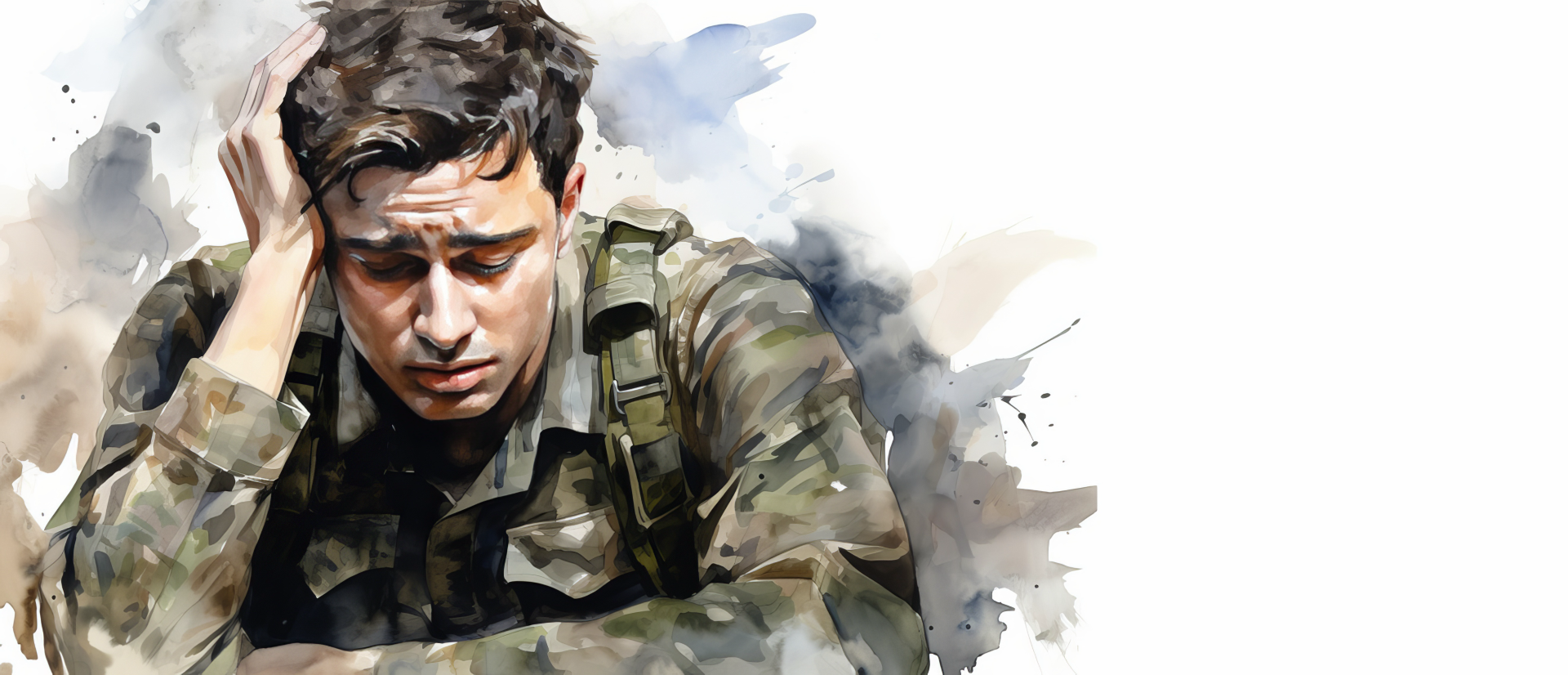
Anxiety Disorders, Panic, Phobias and Fear Part 9: Post Traumatic Stress Disorder (PTSD)
This is a ten-part series about anxiety: How to identify the different forms of anxiety and what you can do to lessen its effects.
PTSD has been on our radar screen since the Vietnam war. Prior to that war, PTSD went by a lot of different names. Soldiers in the Civil War with the exact same symptoms we recognize today as PTSD were branded as cowards. In World War I, doctors blamed these symptoms on exposure to cannon fire and so it was then called Shell-shock.* In World War II, medics and doctors were seeing this same set of symptoms again, but in soldiers and sailors with no exposure to cannon fire. So, they renamed it Battle Fatigue.
There was a movie made, directed by John Huston that follows soldiers returning from WWII with “battle neurosis.” (The Army tucked this away in a vault for decades before releasing it to the public. But you can now watch the whole film on You Tube by clicking on the link.)
Probably due to our increased understanding of stress, brought about by Dr. Hans Selye who published over 1700 papers on stress in medical journals, from the 1930’s until well after the Vietnam war ended, medical experts renamed this condition Post Traumatic Stress Disorder. That’s when it landed in the Diagnostic and Statistical Manual (The DSM 3) and became an official psychological disorder.
A common – yet completely inadequate treatment for this debilitating condition – right through to the 2000’s - was what military doctors have nick-named “three hots and a cot.” In other words, give an overwhelmed soldier a weekend pass for three hot meals a day, a bed (or cot) to sleep on for two nights, and presto, you could justify sending him back into battle. Not exactly the kind of treatment that would address the root cause of the problem but was a commonly used band aid solution. So, despite having a name for the disorder, it didn’t get much respect or attention in the military, until about the last ten or fifteen years depending on who your CO was.
My father was a captain of a Navy ship during WWII. If he would lose his temper, or startle easily (we were told as children NEVER to sneak up on him) my mother would always defend him nobly by saying: “Give him some slack, he fought in WWII after all.” He had colitis for years right after the war, and finally seemed to ease into life when he retired and didn’t have to commute into New York City five days a week.
My office manager, Erica's father fought in Vietnam. His entire family agreed that he had PTSD and I think he knew it too. But he would never seek treatment for it. The stigma around mental health problems was far too great for him to admit to having any problem. He self-medicated with beer and apparently spent a lot of time sitting in the corner of his basement with his back to the wall.
A few years ago, I met Denise Horton, who ran the Alcohol and Substance Abuse Program at Fort Dix Army Base. (now JB MDL) She surprised me by explaining that what happened with Erica’s father was not all that uncommon. Returning veterans with battle experience, want to be able to sit in a room where they feel safe and be able to see exactly who is coming in the door and know that no one can sneak up behind them. Thus, they sit in the corner of a room as far from the door as possible. That would also explain as to why as a child I was told never to sneak up on my father.
Ms. Horton later invited me down to Ft. Dix to meet several soldiers suffering from PTSD. This was about ten years ago, when suddenly soldiers were able to talk about PTSD openly. One soldier told me he had been deployed to Iraq four times. He wore a patch on his sleeve that indicated he had been deployed to Iraq. He said when he came home to his family, they didn’t really understand him. He told me he didn’t want to go to the beach anymore (the hot sand reminded him of the desert). He didn’t want to go to sporting events like a football game (he felt out of control amongst crowds) and he certainly didn’t like attending Fourth of July celebrations with all that noise and essentially what amounted to rocket fire. So it was easier, at least he thought – to keep redeploying to Iraq where his comrades understood exactly what he was dealing with.
In the last part of this ten-part series we’ll talk about the diagnosis and treatment of PTSD we’ll talk about other suggested names for PTSD.





James Porter
Author